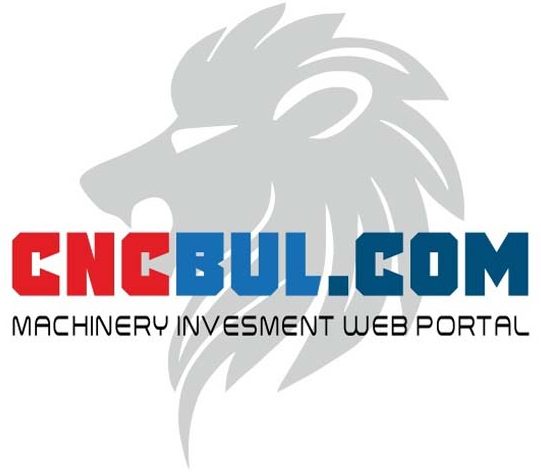What are the issues to be considered before buying a CMM Coordinate Measuring Machine?
Issues to Consider Before Buying a Coordinate Measuring Machine (CMM)
Buying a Coordinate Measuring Machine (CMM) is a significant investment for any manufacturing or quality control operation. The decision requires careful consideration of various technical and operational factors to ensure that the selected CMM meets the specific needs of your application. Below, we delve into the critical issues to consider before purchasing a CMM.
1. Measurement Requirements
a. Accuracy and Precision
- Tolerance Levels: Determine the accuracy requirements of your measurements. CMMs come in different accuracy grades, often specified in micrometers. Ensure the machine can meet the tightest tolerances required for your parts.
- Repeatability: Consider the repeatability of the CMM, which indicates its ability to consistently produce the same measurements under identical conditions.
b. Part Size and Complexity
- Measurement Volume: Ensure the CMM has a sufficient measurement volume to accommodate the largest parts you intend to measure. This includes the X, Y, and Z axes dimensions.
- Complex Geometries: If you are measuring complex geometries, ensure the CMM can handle intricate details. This might include the capability to measure undercuts, internal features, and free-form surfaces.
2. Type of CMM
a. Bridge CMMs
- Common Applications: Suitable for a wide range of applications, including high-precision measurements.
- Stability and Accuracy: Generally provide high stability and accuracy but may require a controlled environment to maintain these attributes.
b. Gantry CMMs
- Large Part Measurement: Ideal for measuring large and heavy parts, such as automotive frames and aerospace components.
- Structural Integrity: Ensure the gantry structure is robust enough to handle the weight and size of large parts without compromising accuracy.
c. Horizontal Arm CMMs
- Versatility: Well-suited for measuring parts that are difficult to access with other CMM types, such as car bodies.
- Flexibility: Often used in industries where flexibility and access are more critical than the highest possible precision.
d. Portable CMMs
- On-Site Measurements: Useful for in-situ measurements where bringing the part to the CMM is impractical.
- Flexibility and Convenience: Ensure the portable CMM provides the necessary accuracy and is easy to transport and set up.
3. Probing Systems
a. Touch Trigger Probes
- Simple Contact Probes: Ideal for basic measurements where the probe touches points on the part’s surface.
- Cost and Simplicity: Generally less expensive and simpler to use but may be slower for complex measurements.
b. Scanning Probes
- Continuous Data Capture: Suitable for capturing continuous data along surfaces, useful for complex geometries.
- Higher Accuracy: Typically offer higher accuracy and faster data acquisition for detailed surface profiles.
c. Optical and Laser Probes
- Non-Contact Measurement: Useful for delicate or soft materials where contact probing might cause deformation.
- Speed and Flexibility: Provide rapid measurements and can capture large amounts of data quickly, but may require more sophisticated software for data interpretation.
4. Software and Integration
a. Measurement Software
- Ease of Use: Choose software that is user-friendly and supports the specific measurement tasks you need.
- Capabilities: Ensure the software can handle complex geometries, create custom measurement routines, and integrate with CAD models.
b. Data Management
- Reporting and Analysis: Look for features that allow easy generation of reports, data analysis, and integration with other quality management systems.
- Interoperability: Ensure the software can communicate with other systems in your workflow, such as ERP and PLM systems.
5. Environmental Considerations
a. Temperature Control
- Stability: CMMs are sensitive to temperature fluctuations. Ensure the operating environment can maintain a stable temperature to prevent measurement errors.
- Compensation Systems: Some CMMs come with temperature compensation systems to adjust for environmental changes.
b. Vibration Control
- Isolation: Consider the placement of the CMM in a location that minimizes vibrations from nearby machinery or traffic.
- Anti-Vibration Solutions: Some CMMs include anti-vibration mounts or can be installed on isolated foundations to mitigate vibration effects.
6. Maintenance and Support
a. Service and Calibration
- Regular Calibration: Ensure the CMM can be easily calibrated and serviced. Regular calibration is essential for maintaining accuracy.
- Support Services: Choose a supplier that offers comprehensive support services, including training, maintenance, and technical support.
b. Spare Parts and Upgrades
- Availability: Ensure that spare parts and software upgrades are readily available to keep the CMM operational over its lifespan.
- Vendor Reputation: Select a reputable manufacturer with a proven track record of reliable service and support.
7. Cost Considerations
a. Initial Investment
- Budget: Consider the initial cost of the CMM, including any additional accessories and software needed for your applications.
- Financing Options: Explore financing options if the upfront cost is a concern.
b. Operational Costs
- Maintenance Costs: Factor in the cost of regular maintenance, calibration, and potential repairs.
- Training Costs: Include the cost of training operators and maintaining their proficiency with the equipment.
8. Future-Proofing
a. Scalability
- Expandability: Choose a CMM that can be upgraded or expanded with additional capabilities as your measurement needs evolve.
- Technology Trends: Stay informed about emerging technologies in metrology to ensure your investment remains relevant and competitive.
b. Flexibility
- Versatile Use: Select a machine that can handle a wide range of measurement tasks, providing flexibility for future projects and requirements.
Conclusion
Investing in a Coordinate Measuring Machine (CMM) requires a comprehensive understanding of your measurement needs, the capabilities of different CMM types, and the technical specifications that will ensure precision and efficiency in your operations. By carefully considering the factors outlined above, you can make an informed decision that aligns with your quality control objectives and long-term business goals.

